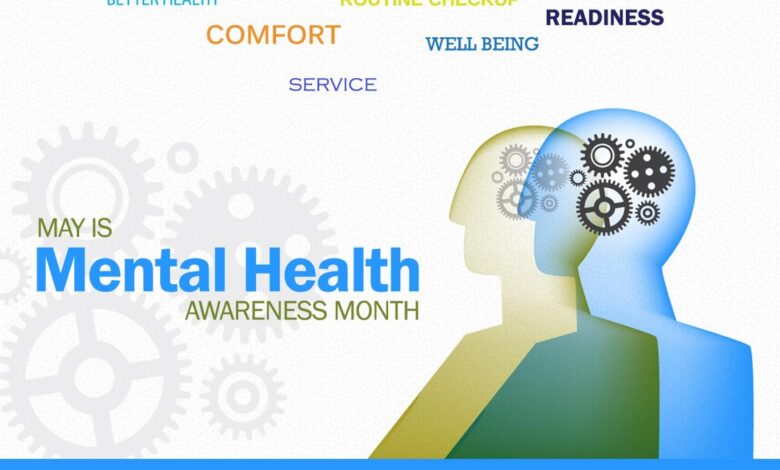
Mental health awareness involves educating the public about mental health issues, reducing stigma, and promoting understanding and empathy towards those experiencing mental health challenges. Bostonians are actively promoting mental health awareness through a variety of initiatives and actions. There are numerous support groups and community organizations across Boston that provide safe spaces for individuals to discuss mental health issues, share experiences, and seek support.
Local organizations, health centers, and universities often launch public awareness campaigns to educate the community about mental health issues, reduce stigma, and encourage help-seeking behaviors. Boston hosts events, workshops, and seminars focused on mental health topics such as stress management, mindfulness, and mental health first aid. These events are often open to the public and aim to provide practical skills and knowledge.
Advocacy groups in Boston work on mental health policy reform, lobbying for improved access to mental health services, better insurance coverage for mental health treatments, and funding for mental health research.Many employers in Boston are implementing workplace wellness programs that include mental health support services, employee assistance programs (EAPs), and training for managers on how to support employees’ mental health.
Boston universities and colleges offer courses and training programs in psychology, counseling, and social work. They contribute to the professional development of mental health practitioners and advocates. Boston has crisis hotlines, mobile crisis teams, and walk-in crisis centers that provide immediate support and intervention for individuals experiencing mental health crises. Efforts are made to integrate mental health services with primary care and other healthcare settings, making it easier for individuals to access mental health treatment alongside physical health care.
Recognizing the diversity of Boston’s population, there are initiatives to ensure cultural competence in mental health services, addressing the unique needs and barriers faced by different communities. Influencers, celebrities, and local media personalities in Boston use their platforms to raise awareness about mental health issues, share personal stories, and encourage open conversations. These efforts collectively contribute to a more supportive environment for mental health awareness and treatment in Boston, fostering a community where individuals feel empowered to seek help and support when needed.
Bostonians are actively promoting mental health awareness through various initiatives, organizations, and community efforts. There are several nonprofit organizations in Boston dedicated to mental health advocacy, education, and support. Examples include NAMI Massachusetts (National Alliance on Mental Illness), which is also known as the National Alliance on Mental Illness of Massachusetts, is a nonprofit organization dedicated to improving the lives of individuals and families affected by mental illness. NAMI Massachusetts aims to provide support, education, and advocacy for individuals affected by mental illness.
The organization works to raise awareness about mental health issues, reduce stigma, and promote access to mental health services and support.NAMI Massachusetts offers a variety of programs and services across the state. For example, peer-led support groups of individuals living with mental illness and their families. These groups provide a safe space to share experiences, receive support, and learn coping strategies.
NAMI Massachusetts offers educational programs such as NAMI Family-to-Family (a free, 12-week course for family members, partners, and friends of individuals with mental illness), NAMI Basics (a program for parents and caregivers of children and adolescents with mental health conditions), and NAMI Peer-to-Peer (a recovery-focused educational program for individuals living with mental illness). NAMI Massachusetts operates a helpline that provides information, referrals, and support to individuals seeking assistance with mental health concerns. The organization engages in advocacy efforts at the state and local levels to improve mental health services, advance legislation related to mental health disparity, and promote policies that support individuals and families affected by mental illness.
NAMI Massachusetts collaborates with community organizations, healthcare providers, schools, and other stakeholders to raise awareness about mental health, provide training on mental health topics, and promote understanding and acceptance of individuals with mental illness. The organization hosts events such as conferences, workshops, and community forums to educate the public, share resources, and foster dialogue about mental health issues. Overall, NAMI Massachusetts plays a vital role in the mental health landscape of the state by offering support, education, and advocacy to empower individuals affected by mental illness and promote a more compassionate and informed community response to mental health challenges.
The Boston Center for Independent Living (BCIL) is a nonprofit organization that serves individuals with disabilities in the Greater Boston area. BCIL’s mission is to empower individuals with disabilities to lead independent and productive lives and to advocate for their rights and inclusion in all aspects of society. BCIL was founded in 1974 as one of the first independent living centers in the United States. Over the years, the organization has had a significant impact on the lives of individuals with disabilities in Boston by empowering them to live independently, advocating for their rights, and promoting a more inclusive society.
The organization promotes the principles of independence, choice, and control for people with disabilities. BCIL provides training and support to help individuals with disabilities develop skills needed for independent living, such as managing personal care, navigating transportation options, and accessing community resources. The organization offers peer support groups and one-on-one peer counseling to provide emotional support, share experiences, and offer guidance from individuals who have similar lived experiences.
BCIL advocates for disability rights and social justice through legislative advocacy, community organizing, and public policy initiatives. The organization works to remove barriers and improve accessibility in housing, transportation, education, employment, and healthcare. BCIL provides information and referral services to connect individuals with disabilities to resources and services in the community, including legal assistance, healthcare providers, and disability-specific support.
BCIL promotes accessibility and inclusion in all its activities and services. The organization advocates for universal design principles and works with community partners to ensure that environments and services are accessible to individuals with disabilities. BCIL engages with the community through outreach events, workshops, and training sessions aimed at raising awareness about disability rights and promoting understanding and acceptance of individuals with disabilities. Overall, the Boston Center for Independent Living plays a crucial role in supporting and advocating for the rights and independence of individuals with disabilities in the Greater Boston area.
The Massachusetts Association for Mental Health (MAMH) is a nonprofit organization dedicated to promoting mental health and well-being across the state. MAMH’s mission is to improve understanding of mental health conditions, advocate for effective mental health services and support and promote mental health as an essential part of overall wellness. Founded in 1913, MAMH is one of the oldest mental health advocacy organizations in the United States. It has played a significant role in shaping mental health policies and programs in Massachusetts.
MAMH advocates for mental health policies at the state and local levels. This includes promoting legislation that enhances mental health services, reduces stigma, and improves access to care. The organization conducts public education campaigns to raise awareness about mental health issues, reduce stigma, and provide information on available resources and supports. MAMH provides training and resources to mental health professionals, educators, and community leaders to enhance their capacity to support individuals with mental health challenges.
MAMH also engages in research initiatives and promotes innovative approaches to improve mental health outcomes and address emerging issues in the field. They collaborate with government agencies, healthcare providers, community organizations, and advocacy groups to strengthen the mental health system and promote integrated approaches to mental health care. MAMH publishes reports, toolkits, and resources that provide insights into mental health issues, best practices in treatment and support, and policy recommendations.
MAMH’s initiatives and advocacy efforts have a broad impact on individuals, families, and communities by promoting mental wellness, advocating for accessible and effective mental health services, and fostering a supportive environment for those affected by mental illness. The Massachusetts Association for Mental Health plays a critical role in advancing mental health awareness, advocacy, and support systems in Massachusetts. Through its comprehensive approach, MAMH aims to improve the lives of individuals affected by mental illness and promote mental health as a fundamental aspect of overall well-being.
The aforementioned organizations offer resources, support groups, and educational programs to raise awareness and reduce stigma surrounding mental health issues. Boston is home to numerous universities and colleges that prioritize mental health education and support for their students. Schools like Harvard University, Boston University, and Northeastern University have counseling centers, peer support groups, and wellness programs aimed at promoting mental well-being among students and faculty.
Various public awareness campaigns are conducted throughout the city to educate the public about mental health issues and resources available. These campaigns often utilize social media, public events, and partnerships with local businesses and community centers to reach a wide audience. Boston offers a range of mental health services through hospitals, community health centers, and private practices. Providers like Massachusetts General Hospital, Boston Medical Center, and Beth Israel Deaconess Medical Center have departments dedicated to mental health treatment, research, and community outreach.
Boston has resources such as Boston Emergency Services Team (BEST), a 24/7 crisis intervention service that provides emergency mental health evaluations and referrals. Hotlines like Samaritans of Boston offer emotional support and crisis intervention through phone and text services. Many workplaces in Boston have implemented mental health awareness programs, employee assistance programs (EAPs), and wellness initiatives to support the mental well-being of their staff. This includes workshops on stress management, mindfulness practices, and promoting work-life balance.
Bostonians advocate for mental health awareness through participation in public policy discussions, lobbying for increased funding for mental health services, and supporting legislation that promotes mental health parity and access to care. Overall, Bostonians are actively engaged in promoting mental health awareness through a combination of community support, education, advocacy, and access to resources. These efforts contribute to a more supportive and informed environment for individuals experiencing mental health challenges in the city.



